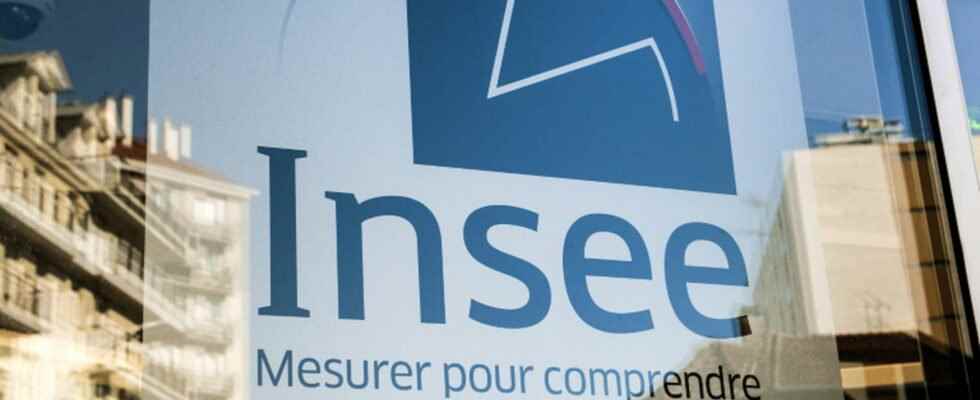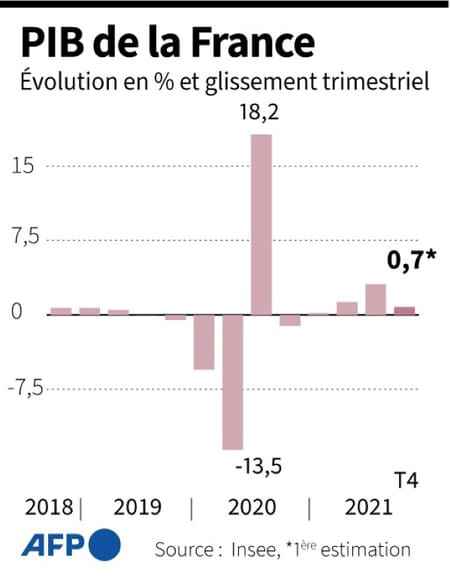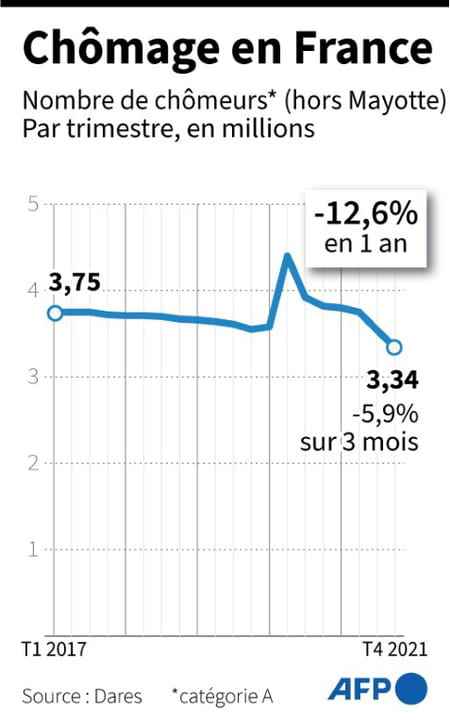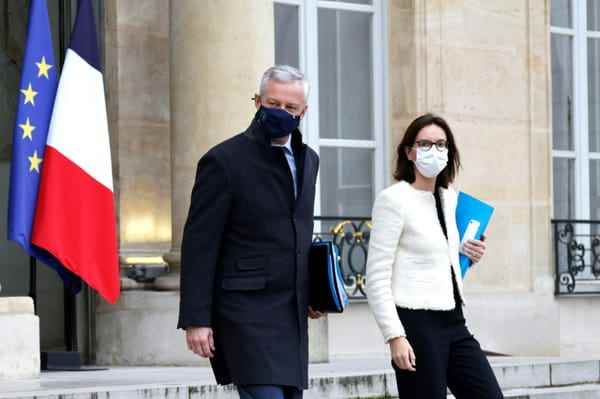French economic activity rebounded sharply in 2021, with growth of 7%, after the historic recession suffered in 2020 due to the health crisis, a performance that the executive does not fail to credit to its management. of the epidemic and its reforms.
With such growth, France should experience one of the best performances in the euro zone, commensurate, however, with the magnitude of the shock suffered the previous year.
“It’s a spectacular rebound”, which “erases the economic crisis” after the fall in GDP of 8% in 2020, hastened to react the Minister of the Economy Bruno Le Maire on France 2.
The last time the French economy had done better was in 1969 just after the crisis caused by the May 1968 movement.
In the fourth quarter, activity “now clearly exceeds” its pre-health crisis level, underlines INSEE.
“It also proves that the government’s economic policy is effective,” defended Mr. Le Maire, when many ministers praised the performance of the French economy on social networks.
In total, the State will have spent a little more than 60 billion euros last year, pushing up the overall bill for Covid-19 to 140 billion euros, at the cost of a public deficit which should still be around 7% of GDP and a public debt of around 113% at the end of 2021.
– The crisis “not yet absorbed” –
On the employment front, France saw the number of unemployed fall to its lowest level in nearly a decade in the last quarter, according to figures released this week.
On the side of the Elysée, we praise the “massive” aid released since the start of the crisis, and “the structural reforms, the choices sometimes decried but which are now proving effective, in particular the favorable conditions for investment (. ..), measures in favor of employment”.
“It is clearly a very dynamic rebound, we could hardly have hoped for it at the start of 2021”, analyzes Charlotte de Montpellier, economist at ING.
From there to say that the crisis is erased, like the Minister of the Economy? “We can’t go that far,” she said. Admittedly, French GDP was in the fourth quarter 0.9% above the same quarter of 2019. “But we have not erased the shock, we have learned to rebound, and we see that the economy must learn to live with the global imbalances that the shock has generated, inflation and the disruption of production chains”, she adds.
Over the whole of 2021, GDP thus remains 1.6% below its 2019 level, specifies INSEE. Certain sectors, such as tourism, transport or the hotel and catering industry remain penalized by the restrictions.
“The crisis has not yet been absorbed,” sums up Philippe Waechter, chief economist at Ostrum Asset management.
Less than three months before the presidential election, the oppositions have also expressed their annoyance at the government’s stated satisfaction.
The rebellious deputy from the North Adrien Quatennens thus considered that “growth for growth’s sake deserves to be questioned”, at a time when “France is in a situation of social emergency”.
– “unevenly distributed” growth –
The environmental candidate for the presidential Yannick Jadot pointed to an “unevenly distributed” growth which “does not benefit everyone”.
For her part, the candidate of the National Rally Marine Le Pen rejected the interpretation of the unemployment figures, believing that “the unemployed of categories B and C have actually increased since June 2017”.
“We are being lied to, growth is 7%, but it was -8% last year, we haven’t even caught up … so that too makes people unbearable,” she said.
Eric Zemmour’s spokesperson, Jean-Frédéric Poisson, castigated him on Twitter for an “announcement effect”. “After a recession of -8% in 2020, France remains weakened”.
For 2022, the government expects growth of 4%, when the Banque de France forecasts 3.6%.
But one of the main risks for the French economy will be inflation, at 2.8% over one year in December, driven by energy. It could weigh on the purchasing power of households, curb their consumption, not to mention the social risk.
In recent weeks the executive has deployed more than 15 billion euros to limit its effects and the subject is emerging as the first concern of the French a few weeks before the presidential election.
All rights of reproduction and representation reserved. © (2022) Agence France-Presse



